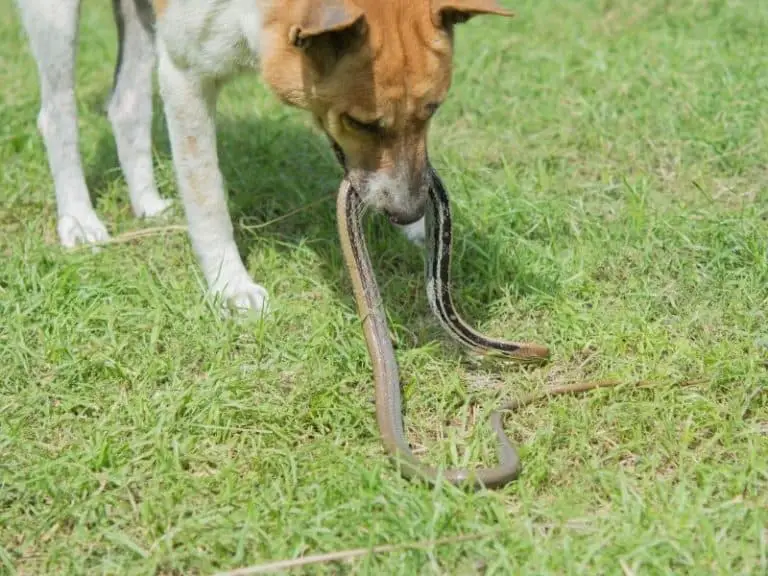11 Effective Ways To Get Rid of Snakes Naturally
There have been many methods proposed and advised for getting rid of snakes naturally, and in my experience, many of them work while some do not. In addition, some may work in some places, and not in others. Thus, many of these snake eradication methods need to be applied in your own situation to see if they will work for you.
To get rid of snakes naturally start with removing pests and hiding areas. Use repellents like fox urine, naphthalene, sulfur, essential oils, garlic, onion, vinegar, lime, lemongrass, & plants like lemongrass. Use the help of snakes’ natural predators.
These are among the most common means of repelling and eliminating snakes in your property.
But how do you apply them?
You may have to go into more detail to know how to use these methods and what principles are involved in making them effective snake repellents.
11 Ways to Get Rid of Snakes Naturally
Snakes creep out many people, and want to keep them at a good distance.

Even if they may be aware that snakes constitute an essential part of our planet’s environment, they want them out of their property just the same.
They reason out that snakes can contribute their share to our ecosystem’s functions, but they can do so at a place other than their yard.
Many people shiver in fear whenever they think of snakes slithering on their property, even if they do not want to kill them. This is the reason why they want to know of the ways in which they can coexist with snakes in general but without the fear that comes with it.
People want a mutually acceptable solution to the problem. They are compassionate enough to want to allow snakes to fulfill their ecological function and eat pests like mice and rats and harmful insects.
At the same time, however, they want these same snakes out of their sight. People want to find a way whereby snakes can stay in “their” world while we stay in “ours.”
People do want snakes to keep out rodent pests, but they also want, for instance, the snakes out of their chicken coop, where they can eat the chicken eggs or young livestock. They want a natural solution that can benefit both humans and snakes.
One problem involved in trying to keep snakes away from our home and yard is that our worlds naturally overlap with theirs.
Our dogs, other pets, and our children love to go outdoors and play.
We also have to tend to our garden, our backyard, and our entire property places that snakes are naturally attracted to.
While we may choose to repel snakes with chemicals, the same poison that may drive them away may also cause potential harm to our loved ones. And so, commercially available chemical snake repellents may not really be the right option.
In addition, some people want to stay in harmony with nature, and believe that whatever Nature may provide, there is also a natural way of opposing it.
All elements of Nature have their corresponding natural opposites or enemies. The play of opposites exist everywhere.
People want a natural option because they do not only worry about the harm that chemical repellents might have on their children and pets, but because these can also inflict harm on our environment.
People are now more environmentally aware compared to the last few decades, and they want to care for our ecosystems, our land, and our planet. They know that scattering man-made chemicals all over their surroundings may negate that purpose.
People might not like snakes, but they like these chemical poisons much less.
There is a greater awareness now where people still want snakes to live even if they are venomous and potentially deadly. They know that even deadly snakes play an essential part in keeping the environment healthy.
The danger of chemical repellents is especially magnified in areas near forests and bodies of water. Here, chemicals can easily pollute them and destroy the delicate balance that exists in nature.
These are the main reasons why people may want a more natural way of getting rid of unwanted snakes.
Thankfully, there are a number of ways that can help keep snakes out of your property while keeping the environment safe. You can try any one of them out, but it is much better to apply them at once.
These methods work in concert with each other and have a synergistic effect; their effects as a whole outweighs the sum of their parts.
Each method may help solve your dilemma a little, but a more encompassing and integrated snake eradication program is really the more lasting and effective solution.
And so, enumerated below are some of the ways by which you can get rid of snakes naturally.
Eliminate pests
By eliminating pests that are prey items of snakes, you eliminate one element that attracts snakes to your backyard.
If there is no food present for snakes to eat on your property, then there is one less reason for them to hang around.
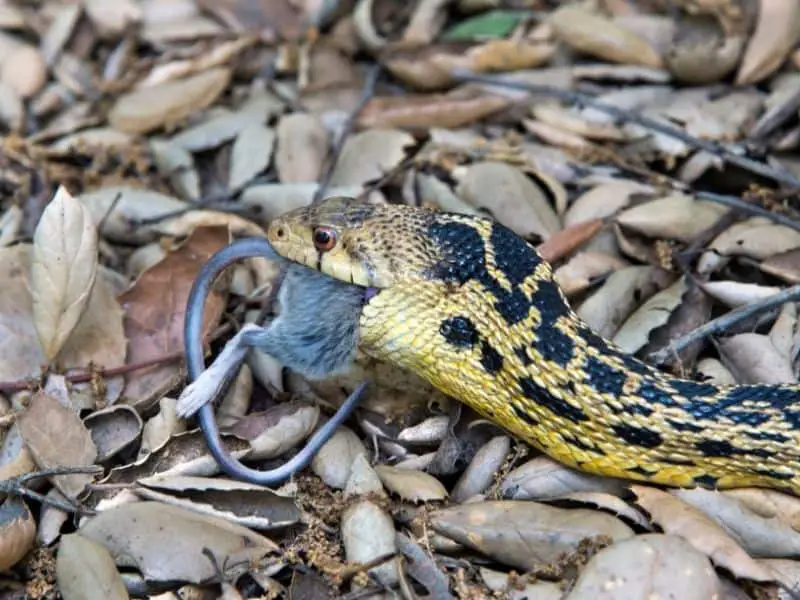
Snakes, depending on the species, eat mice, voles, frogs, rats, moles, slugs, crickets, other insects, and even some birds and fishes.
If there is an abundance of these animals in your yard, especially the rodents, they are not only a problem for you and your home; they also attract snakes.
Rodents are primary food items for many species of snakes. It is imperative that you remove these pests if you want to eliminate snakes in your property permanently.
If pests are really prevalent in your area, and if there is a nearby habitat where an endless reservoir of them exists, then you should implement a regular pest control and extermination program.
Once the rodents in your property have been eliminated, your area becomes a vacuum – a vacant niche of resources that will eventually attract and be filled by a new wave of rodent migrants.
Eliminating pests such as rodents is not a guarantee that snakes will not go into your property. However, you will surely be eliminating one of the top reasons, if not the number one reason, why they stay in an area.
Keep food lids tightly closed
This one is closely tied to the effort to eliminate pests.
Human food or animal feed lying around exposed means a veritable feast for rodents. If these food items are not kept on a tight lid or sealed container, then these will definitely attract rodents.
The same goes for your trash cans or bins. If you don’t keep them tightly closed, they will attract a host of wild animals, and snakes will become just one of your many problems.
You should ensure that all your animal feeds for dogs and cats, chickens, and other pets and livestock should be inaccessible to rodents.
For best results, food, feed, and garbage containers should be made of metal so that they will be impenetrable to destructive rodent teeth.
Plant vegetation that can repel snakes
It is said that the snake plant, also known as mother in law’s tongue, can repel snakes due to its sharp leaves.
I highly doubt this because snakes can easily find gaps in even the thickest aggregation of this plant, letting it cross through safely.
Lemongrass, garlic, and onion are also said to repel snakes if they are planted around your yard.
Raise livestock
To keep snakes out naturally, you may consider keeping some livestock such as pigs, chickens, guinea fowl, and ducks around your property.
Aside from the various benefits that livestock animals provide, they also help keep out snakes by eating or killing them. This livestock even eats mice, toads, bugs, and other pests, including ticks. They can even keep out other pests such as moles.
When providing feeds to your animals, make sure that you only provide feed that your animals can completely consume for every feeding session.
This prevent rodents from being attracted to and eating the leftovers.
As previously mentioned, you should also make sure that all your animal feeds are properly stored in rodent-proof containers or storage areas.
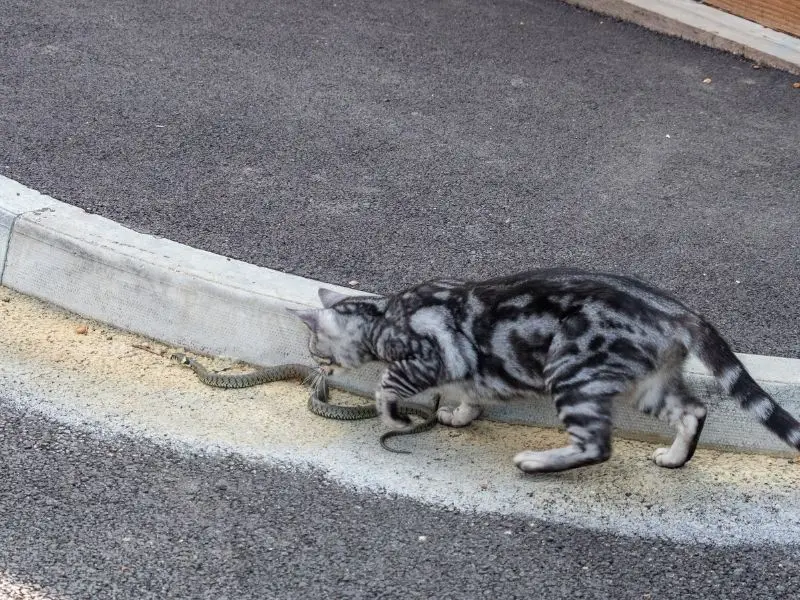
Just as livestock prey on snakes, so also do other wild animals such as raptors, raccoons, and foxes. If your location naturally has foxes, you may try to sprinkle fox urine around your property to try and repel snakes.
Snakes dislike smelling their predators because of the danger they pose, and may become discouraged from entering your property if they smell fox urine.
Keep the animal house secure
Keeping livestock can also attract snakes, however, because snakes eat young chicks and eggs. Because of this, you should make sure that your chicken coop and other animal houses or cages are 100% snake-proof.
You should take extra effort in ensuring that your animal enclosures cannot be accessed by a wide variety of predators, including snakes.
Some suggestions you can follow:
- Wrap the enclosures entirely with hardware cloth; include roof and wall vents as well as the floors
- Keep enclosure doors closed to keep them from becoming entry points for serpents
- Regularly replace and repair damaged roofs, boards, and hardware cloth as often as needed and as early as possible.
Spread sharp mulch
You can take advantage of sharp materials that are known to repel snakes. Spread them in areas where you want to keep out snakes, such as in flowerbeds adjacent to your home or in your vegetable garden.
These materials include pine cones, holly leaves, rock chips, clippings of rose bushes, eggshells, as well as other materials that are uncomfortable for snakes to crawl over.
Remove hiding places
Snakes love to hide in damp and dark areas, including holes, crevices, cracks, and piles of all kinds.
If you eliminate these as much as you can, then you will greatly reduce the incidence of snakes on your property.
Snakes do not like to be exposed out in the open, and do everything they can to avoid detection. Once they get exposed, they scurry and crawl fast to take cover towards the nearest hiding spot.
If there are no hiding areas that can provide refuge for them, they will be very much discouraged in residing in your place or staying around.
Inspect your entire property and immediate surroundings for any of these hiding places and eliminate them all.
Repair or fill up all holes and cracks.
Repair all damaged ventilation ducts, piping, and gutters.
Replace or repair damaged screens of doors and windows.
Eliminate all piles as well. These include woodpiles, boards, compost heaps, firewood, branches and leaves, fallen trees, junk, metal, trash, and all other materials that can be used by snakes as hiding places.
Store your firewood in wood boxes that can be locked, if possible. Eliminate straw mulch, wood chip mulch, twigs, and any other piles collecting on the property.
You may opt to use sawhorses to hold up your wood pile so that they are elevated from the ground and will not offer an ideal hiding place.
In line with this, you should also keep all your vegetation regularly trimmed.
Tall grasses, wild plants, overgrown shrubberies, an untended garden – all of these provide a haven both for snakes and for their rodent prey.
They find this overgrown vegetation as a cool shade as well as a place to find their favorite meal.
Remove wet and damp areas
Snakes like damp areas because they are a cool place to hide in and a habitat for all kinds of prey. Try to remove as much as possible all the damp and dark areas around your property.
Resolve drainage issues and trim shrubs that have overgrown down to the ground.
Rake up leaves.
Remove all standing water such as flowerpots and birdbaths.
Do everything possible to dry up the place, clear it up, and let more sunshine in.
Secure your house
Secure your home by inspecting and eliminating all possible snake entry points.
Do this during spring and fall. Do not leave even tiny gaps, because snakes can fit and slip even in tight, very small spots.
Cover all dryer, HVAC, gas, and bathroom vents and drains with screens.
Securing them also helps prevent pest invasion by rodents and birds. By preventing the entry of pests, you also discourage snakes from trying to go after them inside your home.
Smoke snakes out
Snakes, due to their highly sensitive sense of smell, are very sensitive to fumes and odors. They dislike smoke for this reason.
If you are allowed to dig and light up a fire pit, you can let it emit smoke for a few days. Cover the embers using leaves and moss to maximize the smoke.
Apply snake repellents
There are many natural products that have been used to repel snakes. Some users believe they are effective, while some doubt their effectiveness. If you can, you may try to see if they will work for you.
Some of these natural snake repellents include cinnamon and clove oil, onion and garlic, lime, vinegar, and ammonia.
Cinnamon and clove oil can be mixed and used as a spray. You can spray this solution directly on snakes to repel them.
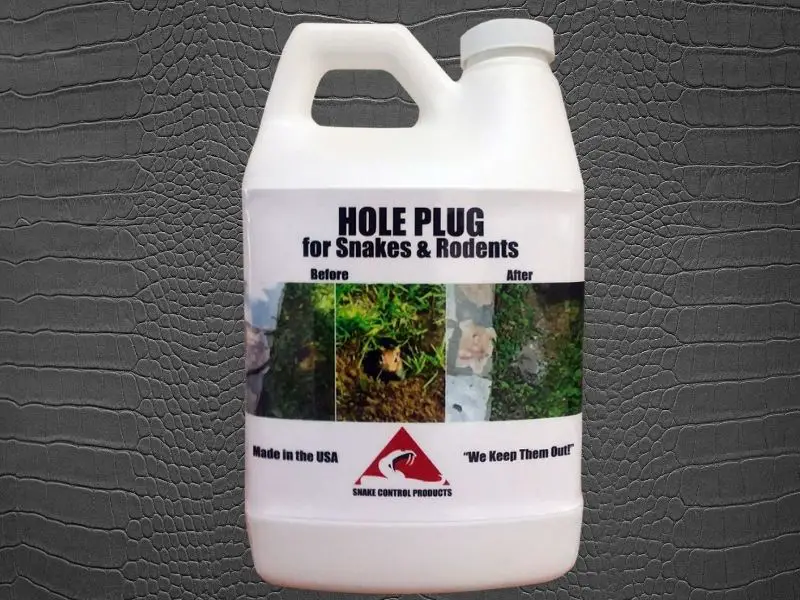
Onion and garlic have sulfonic acid that also repels snakes.
Mix them with rock salt, then sprinkle them on areas where you want snakes out. You can also spray this in other areas such as basements, cracks and crevices, and other places that are hard to reach.
Ammonia also has an odor that is disliked by snakes. You can spray it; alternately, you can soak it in a rug, place it inside an unsealed bag, then place the bag in areas where you have seen snakes.
You may use lime to repel snakes by mixing it with peppermint or hot pepper. Pour the solution around your property, yard, or home. This mixture emits fumes and smells that snakes do not like.
As for vinegar, you may pour white vinegar around bodies of water, including swimming pools if you have one. It serves as a natural repellent that is especially recommended for these areas.
Some people also recommend mixing baking soda with diatomaceous Earth as well as salt, and using the mixture to repel snakes.
You can also use some chemical repellents, although as we have previously said, they may be harmful to your kids and pets.
However, if they are used in areas inaccessible to your loved ones and used according to the manufacturer’s instructions, they could be safe. Such chemicals include naphthalene and sulfur.
Related questions
Can dogs smell snakes?
Many dog breeds are incapable of smelling reptiles. However, there are certain breeds, particularly hounds, that have a sense of smell that is much more developed than other dog breeds, and they can detect snakes easily through smell. Examples of such breeds are beagles, basset hounds, retrievers, and bloodhounds.
Are snakes afraid of lawn mowers?
Snakes do not possess an external ear, and so they cannot literally hear the noise that machines such as lawnmowers and leaf blowers make. However, they are sensitive to ground vibrations. They may thus be able to detect the vibrations produced by a lawnmower and become aware of them.
Sources
- https://www.callnorthwest.com/2019/04/home-remedies-to-keep-snakes-away/#:~:text=Pour%20white%20vinegar%20around%20the,also%20itchy%20on%20their%20skin.
- https://www.mercedsunstar.com/living/pets/old-trainer/article179827726.html
- https://www.therusticelk.com/naturally-repel-snakes/
- https://www.thespruce.com/how-to-get-rid-of-snakes-naturally-1388119
Medical Disclaimer: TheHomePestControl is a digital publisher and does not offer personal health or medical advice. The contents of this website are not intended to substitute for professional medical advice, diagnosis, or treatment.
Affiliate Disclaimer: As an Amazon Associate, I earn from qualifying purchases made on our website. If you make a purchase through links from this website, I may earn a commission at no additional cost to you.

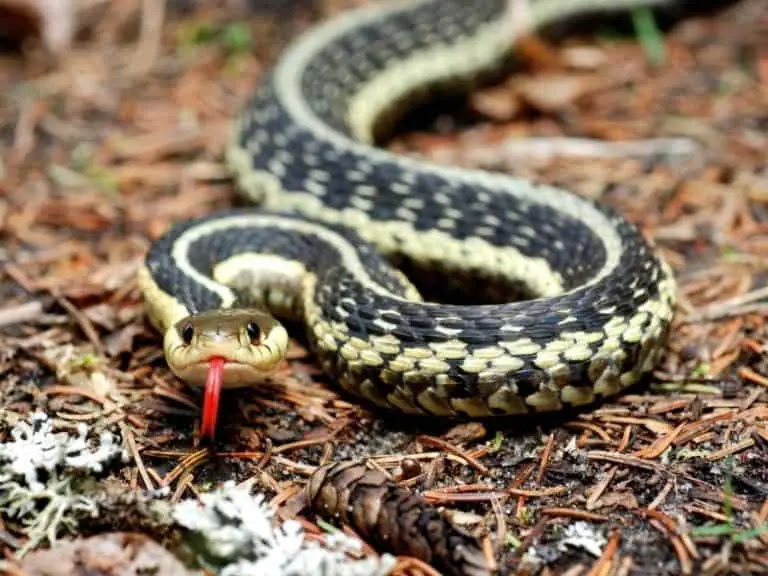
![Who to Call When You See a Snake [For Each State]](https://wypestcontrol.com/wp-content/uploads/catch-snake-768x576.jpg)
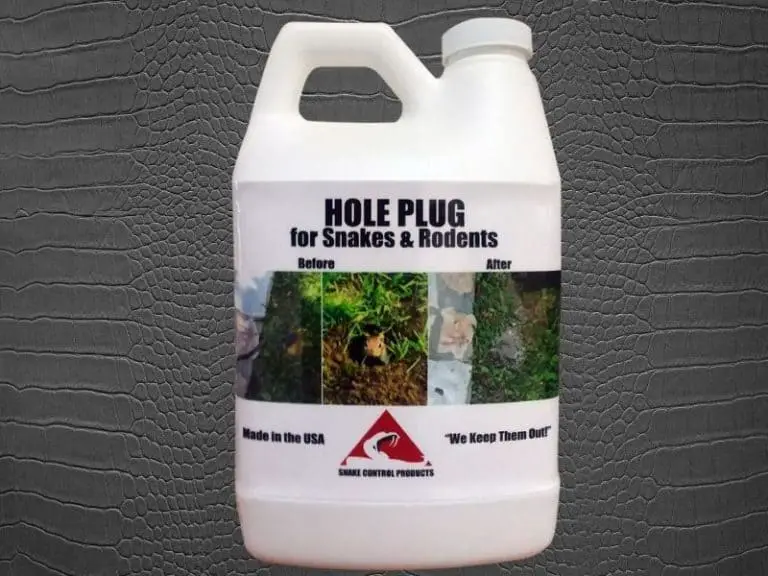
![Does Victor Snake-A-Way Work [Expert Opinion]](https://wypestcontrol.com/wp-content/uploads/victor-snake-away-768x576.jpg)

